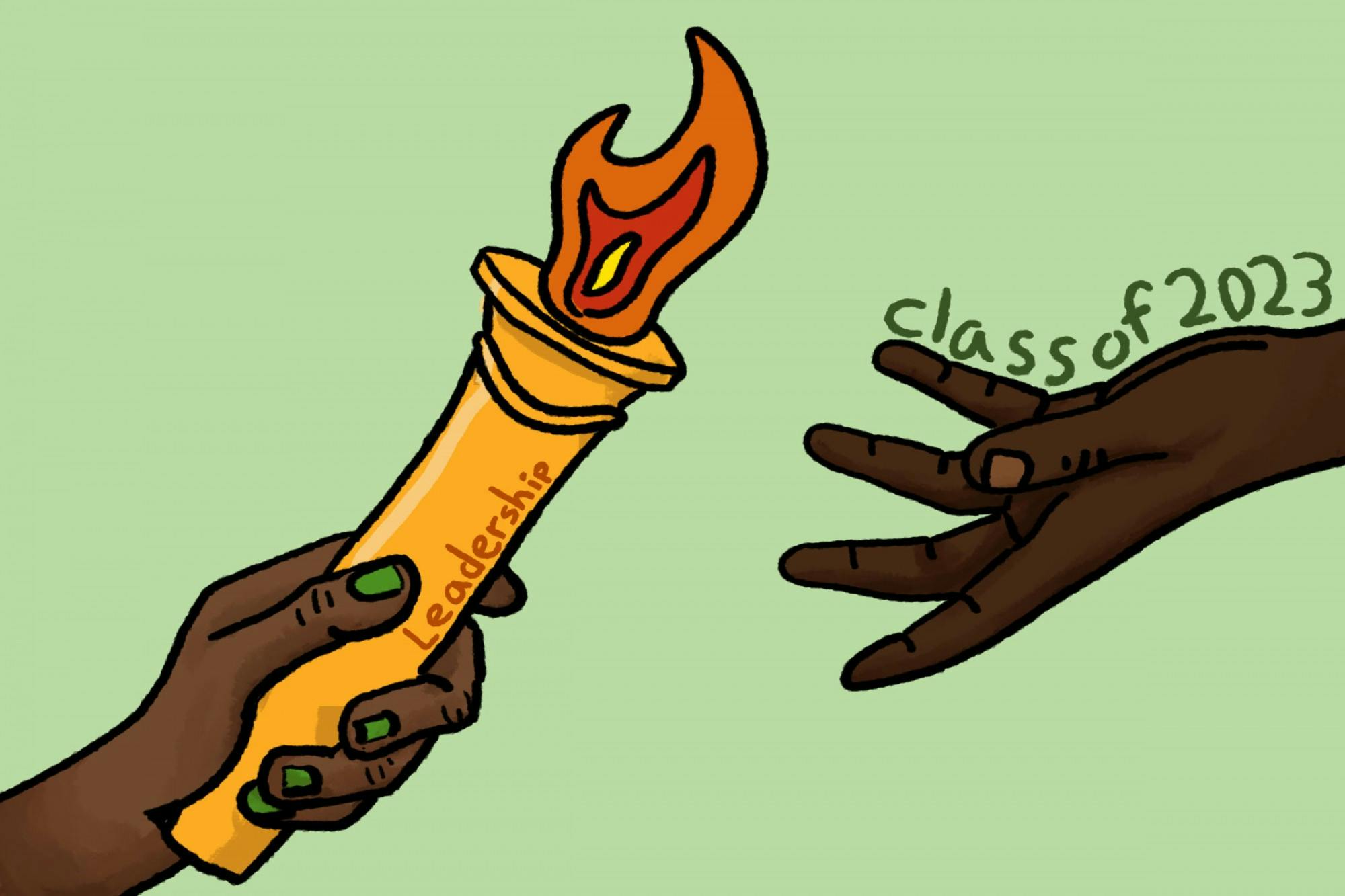Spring here at Dartmouth marks several milestones. The faint remnants of snow and ice slowly melt away, the Green grows more populated and darties become ever more present, even in sub-50 degree weather. But with the arrival of warmth, change also ripples through the campus. While seniors prepare to enter the real world, the next generation of student leaders takes the helm of many campus organizations — from Greek houses to student clubs and more.
Although the last term of the academic year may seem like an odd time for leaders to assume new roles, leadership changeover in the spring allows retired seniors to serve as mentors, guiding juniors through the first leg of their time in charge. For Zahni Khin ’23, president of Beta Alpha Omega fraternity, and Grace Boyd ’23, president of Women in Media, the presence of the previous executives as they transitioned into their new roles has proved invaluable.
“Well, it’s just like any new position — you’re faced with a lot of different responsibilities that you’re just not super used to, but I’m really grateful to have a lot of support,” Khin said. “[Former president] Will Frolich and the other execs have been just a huge, huge help in getting me grounded, giving me advice whenever I needed.”
“I’ve been really inspired by past leaders,” Boyd said. “Now a lot of people are graduating, and I really want to learn from them and continue following in their footsteps.”
Abigail Johnson ’23, the new president of the Dartmouth Outing Club, also emphasized how helpful that prior knowledge can be when adjusting to new responsibilities.
“One thing we are really lucky to have is our DOC staff advisors, which help out with every [sub]club,” Johnson said. “They have a great institutional memory and they have seen years and years of what we’ve done as a club and help keep initiatives going and help keep events going that haven’t happened in a long time.”
But while the wisdom of seniors and advisors can dramatically ease the adjustment period, at the end of the day, each new executive has to choose what kind of leader they want to be.
“I think you have to create this balance between making tough decisions versus trying to make other people happy,” Khin said on his approach to leadership. “Regardless of what decision you make, you’re going to find people that don’t love it, so it’s really important to find that compromise, but also be cognizant of the fact that sometimes you’re going to have to make decisions that not everyone's going to support.”
Managing a large organization of your peers can be stressful, but for Khin and Johnson, the key to successful leadership lies in listening to those around you.
“I think it can be a bit skewed when one person makes big decisions,” Khin said. “I luckily have a lot of people who have great input, who care about this house a bunch — and for that I’ve been very thankful. Whenever I have any questions or need to make a decision that’s going to affect everyone, I can rely on those people to help me out.”
At the DOC, the large, umbrella-like club structure means that leadership also comes with significant logistical challenges.
“I’m really lucky that there are so many people involved with the club and want to see it succeed,” Johnson said. “But I guess I’m nervous about making sure that I stay in touch with all those people and sub- clubs and making sure I hear all of their concerns.”
Khin said that the relaxation of COVID-19 policies is a “huge relief,” as it allows club leaders to avoid the logistical concerns that come with minimizing social contact.
“It’s a lot easier to manage events when we don’t have to worry about people wearing masks or spreading COVID,” Khin said. “We want to ensure that everyone has a safe and fun experience when doing things at the house, so not having to deal with major COVID restrictions helps ease a lot of my stress around that.”
However, the influence of COVID on club functioning has not been all bad. Boyd expressed that the pandemic introduced her, and the rest of the world, to more flexible technology use which have helped her expand Women in Media’s programming.
“Our goal is to bring in outside speakers and guest speakers to help spread knowledge surrounding women and media,” said Boyd. “And the added bonus of COVID is now it’s easier to do that, because Zooming in on meetings is so common.”
From Johnson’s perspective, regardless of whether restrictions remain relaxed, her experience in leadership roles both pre and post-pandemic helps her to face potential new regulations with an adaptable skill set.
“I’m excited because I think that I’m in a spot where — COVID or no COVID — I’ve been involved with the organization for a long time. And I’m excited to be able to use that experience to mentor new students getting involved and also help push through new policies or measures that would be really helpful to make the club better,” Johnson said.
With only a few weeks under their belts and a whole year of possibilities, it seems the newest leaders of Dartmouth’s student population are prepared to leave Dartmouth better than they found it.




